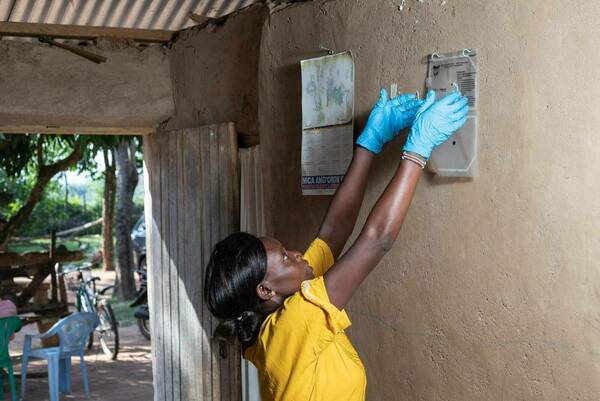University of Notre Dame joins the Global Coalition of Ukrainian Studies
The University of Notre Dame has joined the Global Coalition of Ukrainian Studies after signing a Memorandum of Cooperation (MOC), formalized on September 24, 2025, at the Ukrainian Institute of America in New York City. Notre Dame joined four other American institutions that were also publicly welcomed to the coalition at this event: Arizona State University, Columbia University, Manor College and the Shevchenko Scientific Society.
Founded in 2024, the coalition aims to “unite the efforts of universities and research institutions from around the world to better understand Ukraine and develop Ukrainian studies.”
Olena Zelenska, Ukraine’s First Lady and founder of the coalition, described the 20-member organization as “a real, living network. It is a space of trust and dialogue.” During her remarks at the event, Zelenska went on to say, “We are creating opportunities for the study of Ukraine worldwide in all its dimensions — not only history and culture, but also digital innovation, resilience and the experience of a society defending its freedom.”

Clemens Sedmak, professor of social ethics at the Keough School of Global Affairs and director of the Keough School’s Nanovic Institute for European Studies, and Rory Finnin, professor of Ukrainian studies at the University of Cambridge and visiting professor at Notre Dame for the 2025-26 academic year, attended the formal meeting and accompanying panel event. As part of the panel, Finnin served as a featured speaker, discussing the importance and urgency of establishing Ukrainian Studies programs and underscoring the many ways universities (and the world) can learn from Ukraine. Michael Pippenger, vice president and associate provost for internationalization, served as the signatory from Notre Dame.
The partnership will involve the promotion and exchange of experience, resources and ideas to strengthen the academic environment surrounding Ukrainian studies across the University. It will promote cooperation to deepen mutual understanding and promote Ukrainian and Crimean Tatar studies.

A critical component of these efforts will be the Ukrainian Studies Hub initiative, inaugurated by the Nanovic Institute in March 2025 at a global conference titled “Revolutions of Hope: Resilience and Recovery in Ukraine.” Full details and reflections on this conference are available in the institute’s 2024-25 Year in Review.
Speaking on behalf of the Nanovic Institute, Sedmak said, “We are particularly excited to see the further collaboration that will be generated by becoming part of the Global Coalition of Ukrainian Studies, which is a key part of our mission to support and enhance the level of scholarship about Ukraine — learning with and from our Ukrainian partners — across campus and around the world.”

Another important initiative is the ongoing joint research cooperation between Notre Dame and Ukrainian Catholic University, supported by grant programs through both the Nanovic Institute and Notre Dame Global.
Pippenger said, “Notre Dame is honored to join the Global Coalition of Ukrainian Studies, standing alongside colleagues from around the world in a shared commitment to advancing scholarship that deepens our understanding of Ukraine. This partnership reflects our commitment to be a force for good by strengthening dialogue, resilience and global solidarity.”
More information and photos of the signing in New York can be found in the article by the Office of the President of Ukraine.
Originally published by at nanovic.nd.edu on October 01, 2025.
Latest Research
- Fighting for maternal healthThe United States has the highest maternal mortality rate of developed nations. An innovative postpartum care model from Notre Dame can save mothers around the globe. Read the story Originally…
- NSF Cyber SMART’s fall meeting shapes fifth year of project, legacy and future plans, and adds new memberThe U.S. National Science Foundation (NSF) Cyber SMART center gathered for its fall meeting on the University of Notre Dame campus this September. The meeting served as a checkpoint with progress reports and new projects from research leads and students…
- Slavic and Eurasian studies professor wins Humboldt fellowship to research how Russia’s religious past shapes its presentWhen Russia invaded Ukraine on Feb. 24, 2022, Sean Griffin realized his second book needed a new title. Griffin, an associate professor in the University of Notre Dame’s Department of…
- Notre Dame’s R.I.S.E. AI Conference builds interdisciplinary collaboration to inform human-centered artificial intelligenceAs artificial intelligence (AI) transforms nearly every sector of society — from healthcare and education to governance and global development — a critical question emerges: How can we conscientiously design and deploy these powerful technologies to positively impact society? This…
- The University of Notre Dame’s Mendoza College of Business and Industry Labs team up to inspire national security manufacturing competitiveness in the regionThe South Bend - Elkhart Region is full of manufacturing companies that are poised to grow, and Executive Master of Business Administration (EMBA) and Master of Business Administration (MBA) students at the University of Notre Dame are finding innovative ways to contribute to that growth. Earlier…
- Notre Dame research informs WHO conditional recommendation for spatial repellents in malaria vector controlThe World Health Organization (WHO) recently announced a “conditional recommendation” for spatial emanators, also known as “spatial repellents,” in the fight against malaria. This key determination was informed by spatial repellent studies that included the Advancing Evidence for the Global Implementation of Spatial Repellents (AEGIS) Project in Kenya, led by the University of Notre Dame and funded by Unitaid. The findings from this particular study were recently published in The Lancet.













